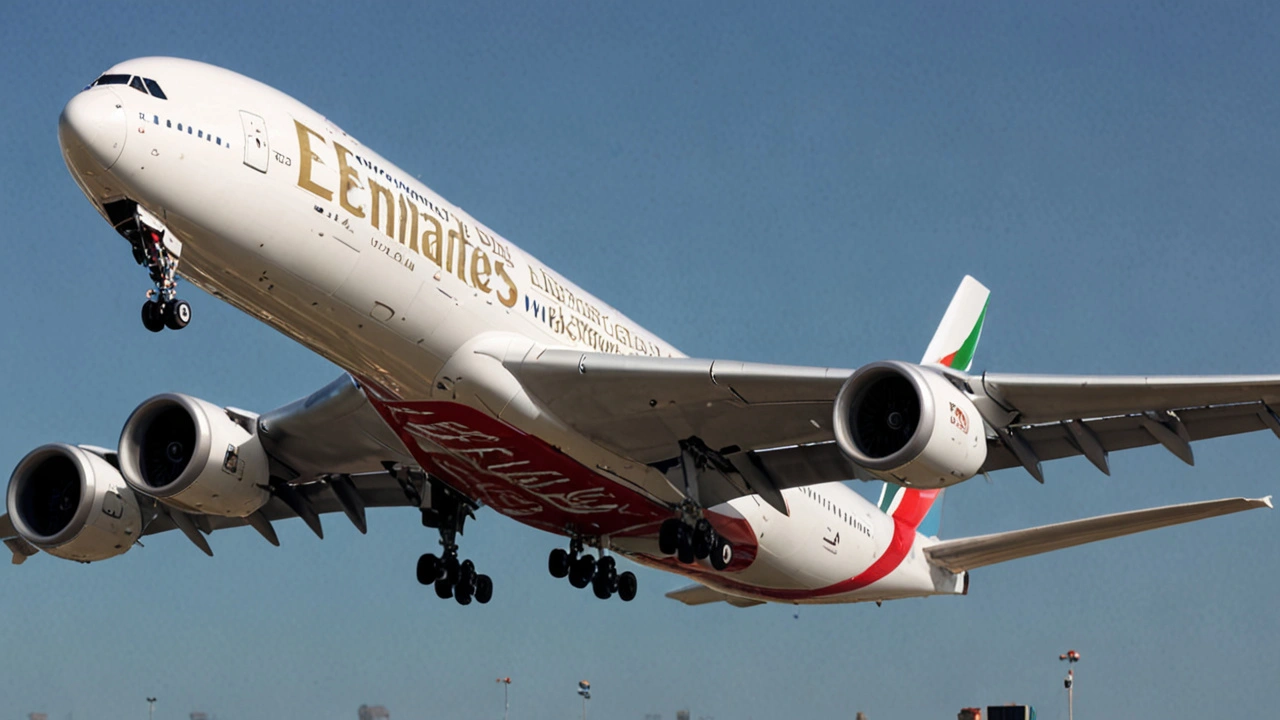UAE Increases Visa Fees for Nigerians Amidst Anger Over New Requirements
The recent lifting of the two-year visa ban on Nigerian passport holders by the United Arab Emirates (UAE) has sent ripples through the Nigerian community. Although the initial news of the lift brought hope and anticipation for renewed travel opportunities, it was quickly overshadowed by the substantial hike in visa application fees, now set at N640,000. This significant increase, especially when compared to the previous fee of $100 (approximately N155,500), has sparked widespread outrage among Nigerians.
Implications of the New Visa Fee
The newly announced fee not only stands as a financial burden but also comes with no guarantees. The visa application fee is non-refundable, meaning applicants must brace themselves for the possibility of rejection without any reimbursement. This policy has raised concerns over its fairness, as individuals must now invest a considerable amount of money without a safety net. The stress and anxiety of the uncertainty have left many Nigerians questioning the motivation behind such an exorbitant fee.
Additional Requirements Add to the Burden
The increased fee isn't the only hurdle for Nigerian applicants. The process now includes an additional requirement: obtaining a Document Verification Number (DVN) prior to applying for a visa. This DVN is valid for just 14 days, adding more urgency and complexity to the already strenuous process. For many Nigerians, these new stipulations feel like an unnecessary and targeted hardship.
Root Causes Behind the Visa Ban
The two-year visa ban was initially instituted due to diplomatic tiffs between Nigeria and the UAE. Multiple issues, including unremitted funds, disrupted flights, and economic disputes, strained relationships between the two nations. Emirates Airline had even ceased flights to Nigeria, causing further inconvenience for many travelers and business professionals. The root causes of these tensions illustrate a complicated and multifaceted geopolitical landscape.
Nigerian Government's Efforts to Mend Relations
In hopes of resolving the diplomatic deadlock, the Nigerian government worked diligently to reconcile differences with the UAE. Minister of Information and National Orientation Mohammed Idris recently disclosed that Nigeria had settled 98% of its $850 million debt owed to the UAE, an effort that played a crucial role in lifting the visa ban. His announcement was meant to signal a new chapter of cooperation between the two countries. However, the subsequent increase in visa fees has left many Nigerians feeling disillusioned.
Public Outcry and Accusations of Exploitation
The reaction to the new fee has been overwhelmingly negative. Social media platforms and public discussions have been flooded with angry comments and accusations of exploitation. Many Nigerians argue that the new fee is not merely an administrative increase but an extortionate measure designed to exploit their desire to travel and explore opportunities abroad. Comparisons to the previous fee of $100 only amplify the frustration and sense of injustice.
Potential Impact on Travel and Business
The repercussions of this fee hike are multifaceted, affecting not just potential travelers but also businesses and long-term economic relationships. The high cost may deter many Nigerians from even considering the UAE as a destination for tourism, business, or transit. Consequently, this could lead to a downturn in bilateral relations and economic exchanges that are vital for mutual growth.
Future Outlook and Governmental Responses
As the outrage continues to grow, all eyes are on both the Nigerian and UAE governments to see how they may address this escalating situation. There have been calls for renegotiation and discussions aimed at reducing the visa fee to a more manageable level. Whether these appeals will lead to tangible changes remains to be seen, but one thing is clear: the current fee is unsustainable for many and poses a significant obstacle to fostering goodwill and cooperation between the two countries.
Concluding Thoughts
The dramatic increase in visa fees for Nigerian passport holders seeking entry into the UAE has stirred significant controversy and debate. While the lifting of the visa ban initially appeared to be a positive development, the subsequent measures have marred this optimism. As both governments navigate this complex issue, it is essential to consider the long-term implications on diplomatic relations, economic partnerships, and the everyday lives of individuals affected by these policies.






Alastair Moreton
July 17, 2024 AT 02:56Well, looks like the UAE just decided to milk the Nigerian diaspora for extra cash. A fee that jumps from $100 to N640,000? That's a classic “pay up or stay home” move, and honestly, it feels like a cheap tactic to squeeze anyone with a dream of working abroad. The whole “non‑refundable” clause just adds insult to injury, and the rest of us are left shaking our heads.
Surya Shrestha
July 26, 2024 AT 23:03In light of the recent policy amendment enacted by the United Arab Emirates, it becomes manifestly evident that the imposition of a visa fee amounting to N640,000-equivalent to a substantial escalation from the antecedent sum of $100-constitutes an economic deterrent of considerable magnitude; moreover, the mandatory acquisition of a Document Verification Number, limited to a fourteen‑day validity period, further exacerbates procedural complexities, thereby engendering a palpable sense of disenfranchisement among prospective applicants.
Rahul kumar
August 5, 2024 AT 19:10hey guys this new fee is insane but you can still try to plan ahead get that DVN quick dont waste time its only 14 days also look for agencies that might offer group discounts its not hopeless just needs some hustle
mary oconnell
August 15, 2024 AT 15:16Ah, the age‑old dance of diplomatic leverage meets neoliberal marketization-what a delightful cocktail of power dynamics and fiscal extraction. While the Emirates parade their “open doors,” the skyrocketing fee acts as a de facto barrier, effectively converting mobility into a privilege reserved for the economically elite. One might argue this is a textbook case of rent‑seeking behavior under the guise of administrative cost recovery, a narrative that resonates across post‑colonial mobility studies. So, cheers to the UAE for redefining “hospitality” with a side of profiteering.
Michael Laffitte
August 25, 2024 AT 11:23Wow, this really hits hard. Imagine saving for months just to see the price jump out of nowhere-it's like watching your future dissolve in front of you. I get why folks are furious; it's not just about money, it's about feeling valued and respected. Hopefully the governments hear the outcry and find a middle ground before this rift deepens further.
sahil jain
September 4, 2024 AT 07:30The fee hike definitely throws a wrench in travel plans, but there are still ways to make it work. Some agencies bundle services which can slightly lower the overall cost, and a few NGOs sometimes sponsor business trips for entrepreneurs. It’s worth scouting those options before you write off the idea entirely.
Bruce Moncrieff
September 14, 2024 AT 03:36Exactly, sahil! And don’t forget to compare the total package cost-sometimes a slightly higher visa fee is offset by cheaper flight deals or accommodation offers you can snag through travel forums. A bit of homework now can save a ton later, trust me.
Dee Boyd
September 23, 2024 AT 23:43It’s blatant exploitation when a nation leverages its economic muscle to monetize the aspirations of another country’s citizens. The moral calculus here is skewed heavily in favor of profit, leaving ordinary Nigerians to shoulder an unfair burden that undermines the principle of equitable international mobility.
Carol Wild
October 3, 2024 AT 19:50One cannot help but wonder whether this abrupt escalation is merely a fiscal maneuver or part of a broader, covert strategy to suppress a demographic perceived as economically advantageous yet politically inconvenient; after all, history is replete with instances where seemingly innocuous policy shifts served as pretexts for deeper control mechanisms, subtly steering migration flows to align with hidden geopolitical agendas, thereby reinforcing power asymmetries under the veneer of administrative necessity.
Rahul Sharma
October 13, 2024 AT 15:56The recent visa fee increase imposed by the United Arab Emirates on Nigerian passport holders is not an isolated administrative adjustment; it is a strategic fiscal instrument designed to regulate migration flows and extract maximum economic leverage from a demographic that has historically contributed substantially to the UAE’s labor market. By elevating the cost from roughly $100 to N640,000, the Emirati authorities have effectively created a financial barrier that filters out all but the most affluent or well‑connected applicants. This move aligns with a broader trend observed across Gulf Cooperation Council states, wherein visa policies are increasingly employed as tools of soft power and domestic market protection. Moreover, the mandatory Document Verification Number, valid for only fourteen days, introduces an element of temporal pressure that further complicates the application process, compelling prospective travelers to act hastily or risk forfeiting their opportunity. The non‑refundable nature of the fee exacerbates this pressure, as applicants now bear the risk of total loss should their applications be denied, a risk previously mitigated by lower fees and more transparent processing. Economically, this policy could deter a significant portion of Nigerian entrepreneurs, professionals, and students who have traditionally sought opportunities in the UAE, thereby reducing bilateral trade and cultural exchange. Politically, the timing of the fee hike-shortly after the lifting of the two‑year ban-suggests a calculated attempt to signal a negotiated settlement without conceding to full openness. From a diplomatic standpoint, the UAE may be leveraging the fee as a bargaining chip in ongoing negotiations over debt repayments and other bilateral concerns. Socially, the public backlash evident on platforms like Twitter and local news outlets reflects a collective sense of disenfranchisement, highlighting how policy decisions reverberate beyond economics into national psyche. It is also worth noting that comparable fee structures have been implemented in nations seeking to regulate influxes of skilled labor, often resulting in a talent drain from the source country. For Nigeria, this could translate into diminished remittances, reduced expertise exchange, and a slower pace of development in sectors reliant on diaspora contributions. In response, Nigerian civil society groups are calling for a renegotiation of the fee, advocating for a tiered structure that considers income levels and purpose of travel. Meanwhile, potential travelers are exploring alternative routes, such as secondary markets or neighboring Gulf states with more favorable visa regimes. The situation underscores the delicate balance between sovereign right to set immigration policies and the responsibility to ensure those policies do not unjustly impede legitimate mobility. As the discourse evolves, it will be crucial for both governments to engage in transparent dialogue, possibly involving multilateral organizations, to arrive at a solution that respects economic realities while preserving human mobility.
Emily Kadanec
October 23, 2024 AT 12:03Paying N640,000 for a visa is just plain ridiculous.
william wijaya
November 2, 2024 AT 07:10I totally get the frustration-saving up that kind of cash only to have the rules change feels like a gut punch. It’s not just about the money; it’s about the hopes tied to that journey. Let’s hope the officials hear the collective outcry and find a humane compromise.
Lemuel Belleza
November 12, 2024 AT 03:16Honestly, this fee hike seems like a cash grab with no real justification.
faye ambit
November 21, 2024 AT 23:23The discourse around the visa fee indeed reflects deeper tensions between sovereign policy and individual aspiration; navigating this space calls for a balanced approach that honors both national interests and the fundamental human desire for mobility.
Subhash Choudhary
December 1, 2024 AT 19:30Looks like we’ll have to get creative if we still wanna hop over to Dubai without breaking the bank.